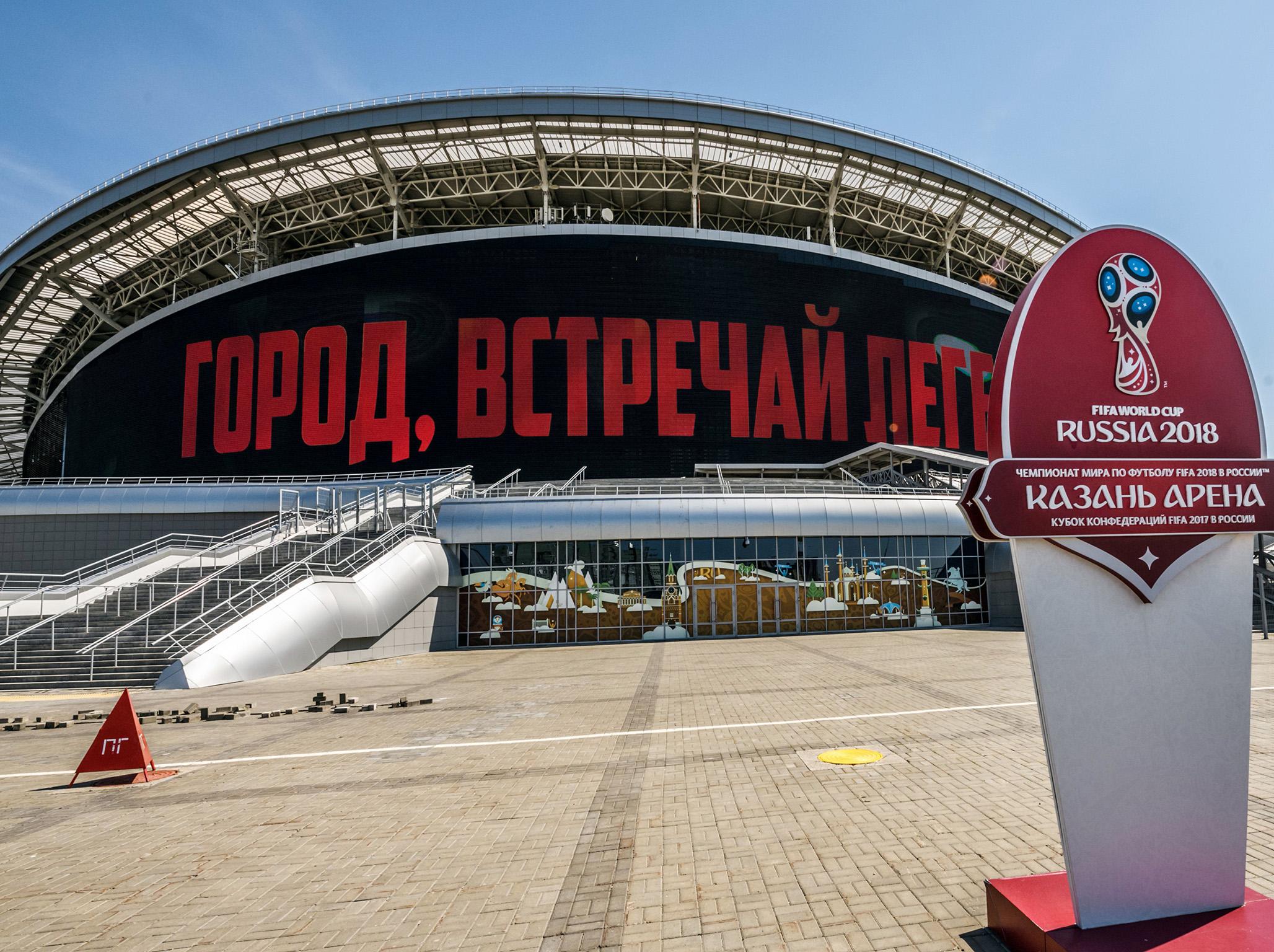World Cup 2018 predicted to have ‘limited and short-lived impact’ on Russian economy
Russia will host the world’s biggest soccer tournament from 14 June to 15 July in 11 cities in the European part of the country, having spent billions of dollars on preparations

Your support helps us to tell the story
From reproductive rights to climate change to Big Tech, The Independent is on the ground when the story is developing. Whether it's investigating the financials of Elon Musk's pro-Trump PAC or producing our latest documentary, 'The A Word', which shines a light on the American women fighting for reproductive rights, we know how important it is to parse out the facts from the messaging.
At such a critical moment in US history, we need reporters on the ground. Your donation allows us to keep sending journalists to speak to both sides of the story.
The Independent is trusted by Americans across the entire political spectrum. And unlike many other quality news outlets, we choose not to lock Americans out of our reporting and analysis with paywalls. We believe quality journalism should be available to everyone, paid for by those who can afford it.
Your support makes all the difference.The 2018 World Cup will have little lasting impact on the Russian economy, Rating agency Moody’s Investors Service said on Thursday.
Russia will host the world’s biggest soccer tournament from 14 June to 15 July in 11 cities in the European part of the country, having spent billions of dollars on preparations.
“We see very limited economic impact at the national level given the limited duration of the World Cup and the very large size of the country’s economy,” Moody’s said. “While the extra boost in tourism will benefit Russia’s already healthy external accounts, the added support will likely be short-lived.”
Moody’s finding is at variance with an assessment last month by former deputy prime minister Arkady Dvorkovich, who said Russia’s economic growth was to a large extent being driven by investments generated by preparations for the World Cup.
Moody’s said the food, hotel, telecoms and transport industries would see a temporary boost in revenue, but the overall credit impact for the Russian corporate sector would be limited.
Moscow airports would benefit “because upgraded facilities will support higher passenger flows, even after the event,” Moody’s said. “Construction companies are also among the key beneficiaries, but they would have already felt much of the impact.”
But the sectors expected to benefit most from increased tourist flows “are not key growth drivers in most hosting local economies,” Moody’s said.
Reuters
Join our commenting forum
Join thought-provoking conversations, follow other Independent readers and see their replies
Comments